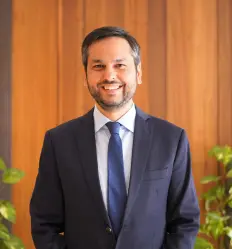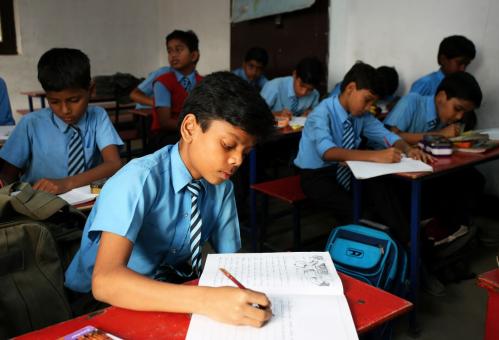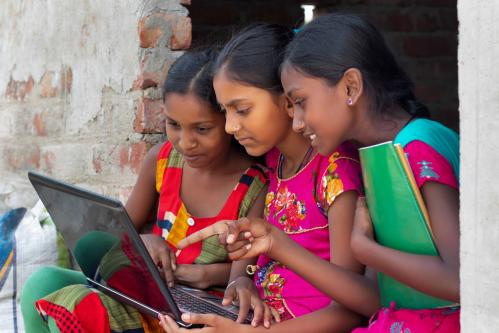

1:30 am IST - 3:00 am IST
Past Event
1:30 am - 3:00 am IST
No. 6, second floor, Dr Jose P Rizal Marg, Chanakyapuri
New Delhi
110021
Content from the Brookings Institution India Center is now archived. After seven years of an impactful partnership, as of September 11, 2020, Brookings India is now the Centre for Social and Economic Progress, an independent public policy institution based in India.
The Brookings India Foreign Policy & Security Tiffin Talks are a series of closed-door seminars where scholars present their evidence-based research on India’s security and strategic affairs to peers and practitioners. It seeks to fill the scholar-practitioner gap and expose a new generation of analysts to policy-relevant research.
Professional Military Education (PME) in India
Despite being one of the most professional providers of military training in the world, India still faces significant gaps in terms of military education, beyond tactical and operational issues. In an endeavor to start a broader conversation on civil-military relations, and a narrower one on the prospect of a National Defence University and military education in India, Asst. Professor Anit Mukherjee presented his paper ‘Educating the Professional Military: Civil–Military Relations and Professional Military Education in India’.
In his presentation, he argued that civilian intervention is required in professional military education in order to enhance effectiveness and improve military-civilian ‘jointness’. At the outset, he posited the differences between training and education, “you train for certainty, while you educate for uncertainty”. Education equips the military with strategic foresight, and gives them a sense of the tactical ramifications of any decision. What makes this even more important is that most decisions taken by the military on the ground are taken in very short time periods. Mukherjee stressed that a necessary corollary for the education to be effective is the presence of good faculty and curricula. A strong Professional Military Education (PME) system would include civilian faculty within the core of the organisation, and structure its curriculum on the basis of broader disciplines such as international relations, military history and strategic studies in addition to operational and technical proficiency courses.
Mukherjee went on to provide a view of the educational stages military students have to complete in India and highlighted the civilian partnerships that multiple defence universities in India have. He highlighted the importance of creating a pool of expertise exclusive to defence studies in India by civilian scholars.
Civilian intervention in this case is seen as an advantage, because it is assumed to enhance the effectiveness of the military, which is bolstered by military-civilian ‘jointness’. He cited the United States as an example, where civilians have played an important role in the advancement of PME from the 1990s. PME, he noted, can change the organisational culture of the military for the better, save money and be emulated by systems around the world. Mukherjee viewed it as a partnership or a balance between academics and operational ability.
Civil-Military Relationship
Participants acknowledged the imperative nature of improving India’s PME, but differed on the severity of the issue at hand and also on the best ways to address the shortcomings. Some questioned whether the military had enough manpower to back such an ambitious project. Others noted that the armed forces are pushed to the limit performing primary tasks, and therefore, undertaking these extra tasks would be highly challenging.
Secondly, they questioned the level at which this education was to be imparted, and when this education would begin to take effect, or see any concrete results. Elaborating on this point, some participants noted that the PME systems in place in the United States, for example, are unaffordable luxuries in the far more challenging Indian context, given the constant security challenges and operational requirements.
In order to improve civil-military relations in this domain, training of military officials needs to shift towards academia rather than being career military officers. In addition, there are multiple institutional issues, the least of which are bureaucratic delays on the part of the government. There are also rather strict lines of professionalism between the civil and military elements of the government, with a visible lack of coordination. This is all accelerated by the lack of political attention towards the military.
Big Bang Reform or Gradual Change?
Participants debated the options between waiting for big bang reforms, such as the NDU bill or if there was scope for military to induce change from within, and if this change would be civilian-led or imposed. They discussed the advantages and disadvantages of a centralised professional military institution, and how it would fit into the existing Indian structure. Discussants noted that if military-civil relations remain as they are at present, it would be difficult to create an ‘in-house educational paradigm’. Many advocated for gradual, evolutionary change. Participants noted that ‘education is not a ‘toggle switch’, it is a gradual process and must be imparted over a long period of time, therefore, this is a long-term change that must be facilitated. They noted that small changes were already taking shape within military education structures — an emphasis on guest lectures, training capsules organised by partner institutions, focus on research in defence training colleges, internal collaboration and tie-ups between the different defence training colleges in Mumbai, Hyderabad, New Delhi and Chennai.
Panellists highlighted that the existing challenge is not one of just a civil-military relationship of PME, it is civil-military relationships per se. PME only serves as a subset of a larger systematic problem. In order to address it, a bottom-up approach is required.
Key Recommendations
The discussion offered key recommendations and suggestions to reform professional military education in India. They include:
Moderator


Ghulam Omar Qargha, Rachel Dyl, Sreehari Ravindranath, Nariman Moustafa, Erika Faz de la Paz
May 3, 2024

Ghulam Omar Qargha, Chandni Chopra, Rachel Dyl, Srinidhi Lakshmanan
December 15, 2023

Anusha Bharadwaj
December 5, 2023